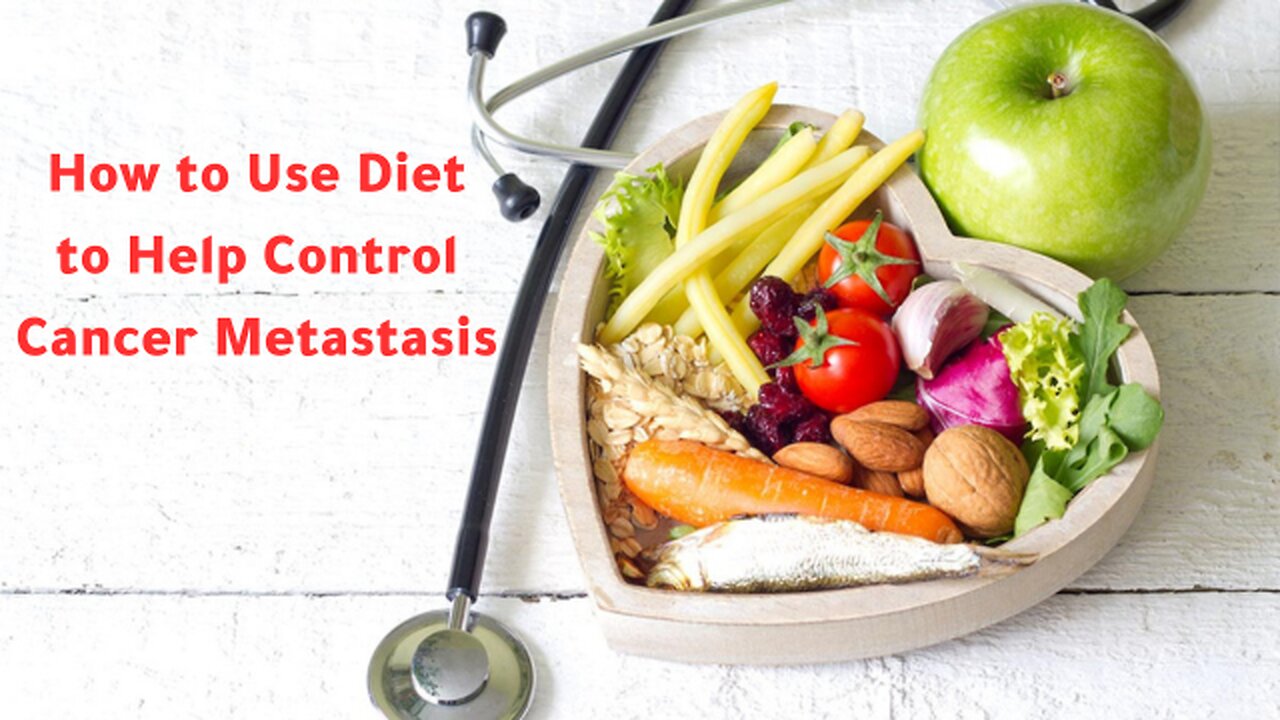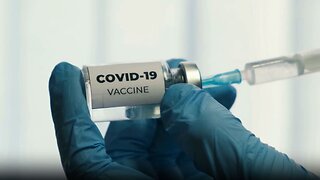Premium Only Content

How to Use Diet to Help Control Cancer Metastasis
Metastasis is the leading cause of cancer related death. Cancer kills because cancer spreads. For example, the five year survival rate for women with localized breast cancer is nearly 99%, but that drops to just 27% in those with.
Metastasize cancer. Yet our ability to effectively treat metastatic disease has not changed significantly in the past few decades. You know things are getting desperate when there are papers like this targeting metastasis with snake toxins.
Now we do have built in defenses, natural killer cells that roam the body, killing off budding tumors, and I have videos on boosting natural killer cell activity. But as I explained in the last video, there's a fat receptor called CD36. It appears to be essential for cancer cells to spread, and these cancer cells respond to dietary fat intake, but not all fat.
CD36 is up regulated by palmetic acid as much as a 50 fold increase within 12 hours. Palmetic acid is a saturated fat found in junk food made from palm oil, but it's most concentrated in meat and dairy. This may explain why if you look at dietary fat and breast cancer mortality, there was no difference in risk of breast cancer specific death for women in the highest versus lowest category of total fat intake.
But you're about 50% more likely to die of breast cancer. Feed a lot of saturated fat. The systematic review of metaanalysis conclude that saturated fat intake negatively impacts upon breast cancer survival. This may explain why intake of high fat dairy but not low fat dairy was related to a high risk of mortality after a breast cancer diagnosis if it was the dairy.
Protein. Like caseine. That was a problem. The skim milk might be even worse, but no, it was the saturated butter fat, maybe because it triggered the CD36 induced cancer spreading mechanism. Women who consumed one or more servings per day of high fat dairy had about a 50% high risk of dying from breast cancer.
We see the same thing with dairy intake in relation to prostate cancer survival and drinking high fat milk compared to increase the risk of dying from prostate cancer by as much as 600% in patients with localized prostate cancer. But low fat milk was not associated with such an increase in risk, so it seemed to be the animal fat rather than the animal protein. And this is consistent with what Harvard researchers found in the United States.
More evidence that the fat receptor CD36 is involved is that the risk of colorectal cancer from meat consumption increased from just doubling risk to octopling risk, multiplying the odds of getting cancer eightfold for those who carry a specific type of CD36 gene. So is it time to give breast cancer patients, for example, a prescription for a low fat diet? A cancer diagnosis is a.
Teachable moment, if there ever was one, to motivate people to make changes to their lifestyle. But provision of evidence based guidelines is essential and you don't know until you put it to the test. A randomized perspective, multicenter clinical trial to test the effect of a dietary intervention designed to reduce fat intake.
In women with resected early stage breast cancer, meaning the women had their breast cancer surgically removed and we're praying it doesn't come back, the dietary intervention group dropped their fat intake from about 30% of calories down to 20% of calories, dropped saturated fat intake about 40% and maintain that 40% lower intake after one year, three years, five years and.
After approximately 5 years of fall, the women in the dietary intervention group had a 24% lower risk of relapse, a 24% lower risk of the cancer coming back. That was the WINDS study, the Women's Intervention Nutrition study.
Then there was the Woman's Health Initiative study, where again, women were randomized to drop their fat intake down to about 20% of calories. And again, those in the dietary intervention group experienced increased breast cancer survival, meaning a dietary change may be able to influence breast cancer outcomes. And not only was breast cancer survival significantly greater, the women also experienced a reduction in heart disease and a reduction in diabetes as a little side bonus.
-
 LIVE
LIVE
Matt Kohrs
8 hours agoMAX DEGEN TILT!!! (New Highs Incoming!) || The MK Show
1,870 watching -
 LIVE
LIVE
Wendy Bell Radio
4 hours agoDOGE Just Ended The Deep State
13,150 watching -
 34:23
34:23
BonginoReport
1 hour agoMedia Exposed as Government-Funded Propaganda Machine (Ep.134) - 02/06/2025
19.2K17 -
 LIVE
LIVE
Vigilant News Network
14 hours agoThe Most Devastating COVID Jab Report So Far | The Daily Dose
1,176 watching -
 1:29:45
1:29:45
Game On!
15 hours ago $3.08 earnedPresident Trump makes NFL HISTORY! Make the Super Bowl Great Again!
5.99K2 -
 9:17
9:17
Dr. Nick Zyrowski
1 day ago4 Steps To Lose Fat Naturally Without Exercise
18.1K4 -
 13:10
13:10
This Bahamian Gyal
14 hours agoLooking For A Job in 2025: 10 RED FLAGS To Watch Out For
23.8K5 -
 17:41
17:41
IsaacButterfield
1 day ago $2.27 earnedInsane Woke TikTok Returns Crazier Than Ever!!
16K11 -
 8:21
8:21
Mally_Mouse
13 hours agoPresident Trump - Week #2
12.3K13 -
 5:23
5:23
BIG NEM
13 hours agoWhat Is Jollof Rice? West Africans Explain the Magic Behind It!
4.48K5